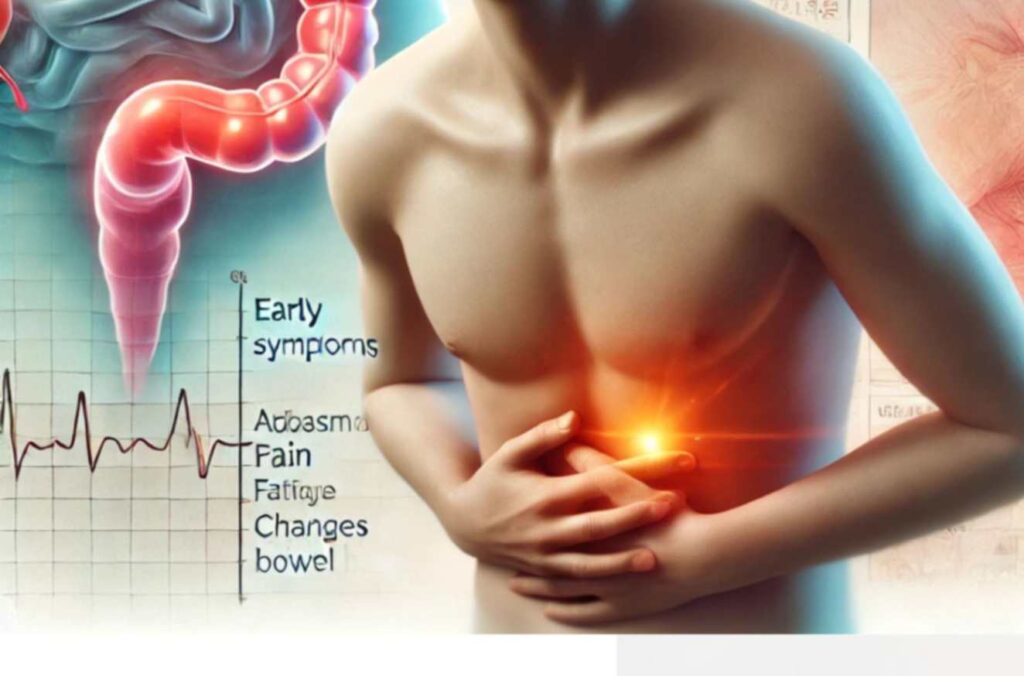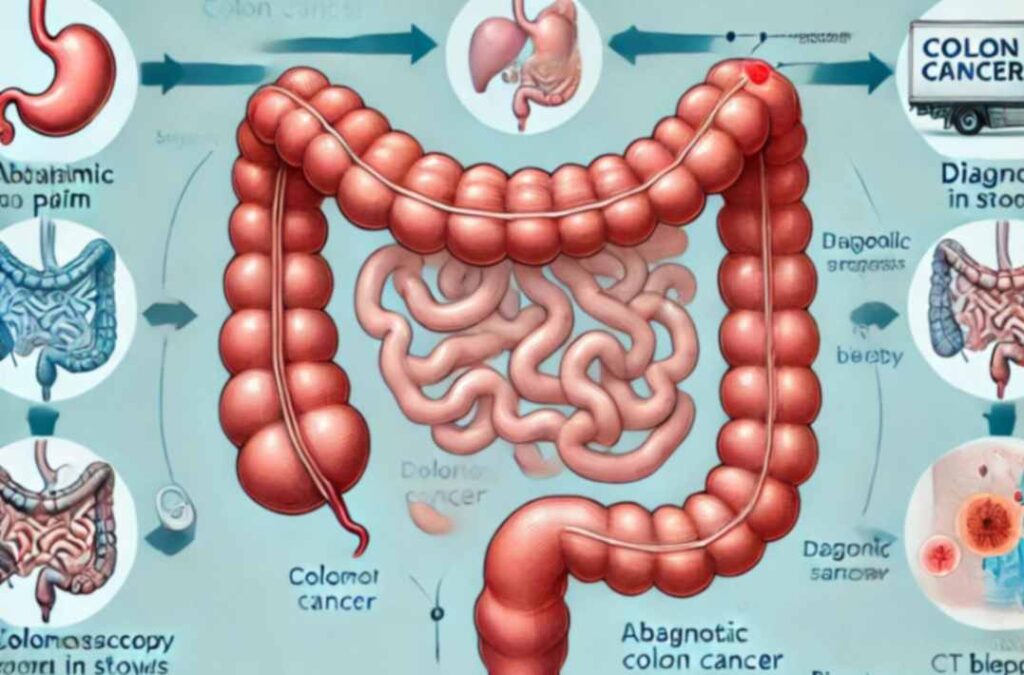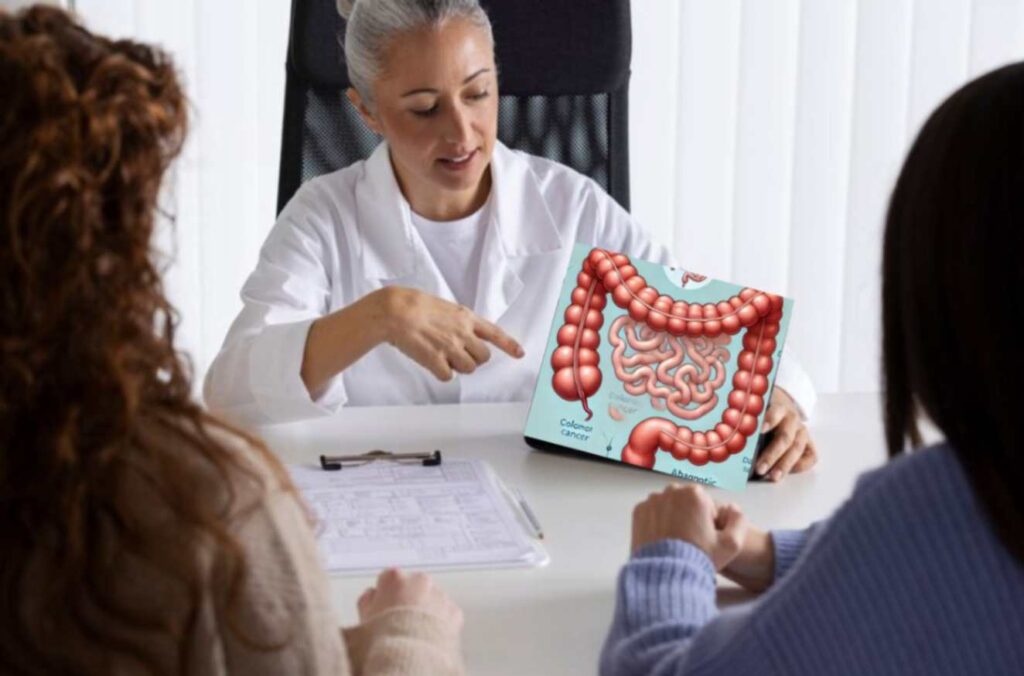Colon cancer often begins quietly, with subtle symptoms that are easy to ignore. Still, catching it early can make a world of difference. My journey began with symptoms that I dismissed as trivial—until they became impossible to ignore. By sharing my story, I hope to help others recognize the warning signs early and take action. Colon cancer can affect anyone, but with the right awareness, we can catch it before it’s too late. Here’s how I knew something was wrong—and what you should watch out for, too.
Recognizing Early Signs and Symptoms:
1. Subtle changes in Bowel Habits:
One of the first symptoms I noticed was a change in my bowel movements. All of a sudden, I was going to the bathroom more often, but sometimes showing up for it too little. My stools also looked different—sometimes tight and even a little discolored. These small changes may seem random or insignificant, but if they persist, they can indicate that something is going on within the digestive system.
2. Persistent Fatigue:
Another early symptom was a persistent feeling of fatigue. Despite getting my usual amount of sleep, I felt drained throughout the day, as if I was running out of energy. Such fatigue can be easy to ignore, but it often indicates the body’s immune system is working harder to fight something from within. When unexplained, persistent fatigue becomes a part of your daily life, it’s worth investigating further.

3. Abdominal Pain:
Along with being tired, I started to feel a slight pain in my stomach. It wasn’t fast or intense, but it kept coming and going for no apparent reason. It’s easy to dismiss this type of discomfort as a minor stomach bug or something to do with food, but it’s wise to pay attention when it becomes a regular sensation. Persistent, low-grade pain can sometimes be the body’s way of signaling that something more serious is going on.
4. Changes in Appetite and Weight:
As time went on, I noticed subtle changes in my appetite. I wasn’t as hungry as I used to be and even started losing a bit of weight unintentionally. Small changes in weight or appetite may seem harmless, but they can be early warning signs of something deeper. If you’re eating less without even trying, it’s a good idea to consider whether something in your body might be causing it.
The Path to Diagnosis:
1. Seeking Medical Advice:
When my symptoms didn’t go away, I decided it was time to see a doctor. At first, I was hesitant, thinking it was just a minor digestive problem. But after experiencing constant discomfort, fatigue, and changes in my bowel habits, I knew I needed answers. My doctor listened carefully to my symptoms and, recognizing that these symptoms could indicate something serious, recommended further testing.
2. Undergoing Initial Tests:
The first step was a blood test, which can show signs of anemia or other signs of illness. My blood work showed a low red blood cell count, which can be associated with internal bleeding—a possible sign of colon cancer. Although he did not confirm anything, he indicated that further investigation was necessary. Next, my doctor recommended a colonoscopy, an important test to examine the colon and identify potential problems.

3. Colonoscopy Experience:
A colonoscopy can feel scary, but it’s one of the best ways to screen for colon cancer. The day before, I had to prepare by following a specific diet and drinking a solution to cleanse my digestive system. During the procedure, the doctor used a small camera to examine the inside of my colon. While it was uncomfortable, I reminded myself that this test could give me the answers I wanted. A colonoscopy revealed a suspicious growth, and the doctor took a biopsy to determine if it was cancer.
4. Waiting for Results:
Waiting for the biopsy results was one of the hardest parts of the journey. The uncertainty was stressful, as I tried to prepare for whatever news came. During this time, I relied on the support of friends and family, who helped keep me calm. This period reminded me of the importance of having a support system during health challenges, as waiting for results can be emotionally draining.
Understanding Emotional Impact:
1. Initial shock:
Receiving the cancer diagnosis was a shock wave. Although I had braced myself for the possibility, hearing the words “colon cancer” felt surreal. I sat in silence, trying to process what this would mean for my future. For a moment, time stood still as I fought fear and disbelief. Cancer was something I always associated with others, never expecting to happen to me.
2. The Weight of Telling loved Ones:
Sharing the news with family and friends was emotionally challenging. Telling them I had cancer felt like a heavy blow. I was worried about their reaction and didn’t want them to worry too much. Seeing their concern made me feel supported and, in a way, responsible for their pain. Despite these mixed feelings, their support became an important part of my strength going forward.

3. Managing daily Stress:
The days following my diagnosis were filled with anxiety, as I thought about treatment and what the future held. Even small, everyday tasks feel different, often clouded by anxiety. To help manage this anxiety, I started doing simple mindfulness and breathing exercises. Just taking a few moments each day to focus on my breath helped me strengthen and gave me some relief from constant anxiety.
4. Recognize the Importance of Self-Care:
In the end, I learned that self-care was not selfish but necessary. Taking time for myself—whether by relaxing, enjoying a hobby, or simply being quiet—helped me manage my emotions. This journey taught me that self-compassion is just as important as medical treatment. By taking care of my mental and emotional well-being, I felt more prepared to tackle the challenges ahead.
Navigating Treatment Options:
1. Understanding the Treatment Plan:
After my diagnosis, my doctor explained the various treatment options available. It was overwhelming at first, with terms and procedures that I didn’t fully understand. However, my doctor took the time to break down each option and explain how it might affect me. Knowing my choices—surgery, chemotherapy, radiation, or a combination—helped me feel more in control of my path forward.
2. Role of Surgery:
In my case, surgery was recommended to remove the cancerous part of my colon. The idea of surgery was terrifying, but my doctor explained that removing the tumor could prevent the cancer from spreading further. They informed me of the procedure, what to expect, and the recovery process. This preparation eased my anxiety and helped me see surgery as a necessary step toward healing.

3. Dealing with Side Effects:
During treatment, side effects became a part of my daily life. Fatigue was a constant companion, making even the simplest tasks seem difficult. Nausea and changes in appetite also affected me, and I found myself needing to eat smaller meals more often. My doctors provided medications to help, and I learned which foods were easier on my stomach. Although the side effects were difficult, finding ways to manage them made the process more bearable.
4. Seeking Alternative Treatments:
In addition to conventional treatments, I sought out complementary therapies to help manage my symptoms and boost my mood. Options like acupuncture, massage therapy, and meditation offer a sense of relaxation and relief from the stress of treatment. These treatments didn’t replace my medical treatment, but they gave me ways to feel better physically and mentally. In consultation with my doctor, I found safe, supportive ways to improve my quality of life.
5. Stay Focused on Recovery:
Throughout the treatment process, I kept my focus on the end goal: recovery. There were days when it was hard to stay positive, but I reminded myself that each step was bringing me closer to health. By staying focused on my recovery, I was able to maintain a sense of purpose. This mindset helped me get through the tough days, reminding me that there was light at the end of the tunnel.
What is Commonly Misdiagnosed as Pink Eye?
Conclusion:
Facing a colon cancer diagnosis was life-changing, but it taught me the importance of listening to my body, getting help, and leaning on support. From symptoms to treatment, each step was difficult but filled with resilience and hope. Through it all, I learned to appreciate life’s small victories and prioritize health. Cancer was a tough journey, but it made me stronger and reminded me to cherish each day.
FAQs:
What are the early symptoms of colon cancer?
Early symptoms may include changes in bowel habits, unexplained weight loss, persistent abdominal pain, and fatigue. These symptoms are subtle, so it is important to consult a doctor if symptoms persist.
How is colon cancer diagnosed?
Colon cancer is diagnosed through medical tests such as colonoscopies, blood tests and biopsies. These procedures help doctors examine the colon, detect abnormalities, and confirm the presence of cancer.
Related Posts:
- How i Knew I had Colon Cancer
- Which of these is not Important for Positive Mental Health?
- What is Commonly Misdiagnosed as Pink Eye?
- Does Wellbutrin Cause Weight Gain?
- Does Creatine make you Gain Weight?
